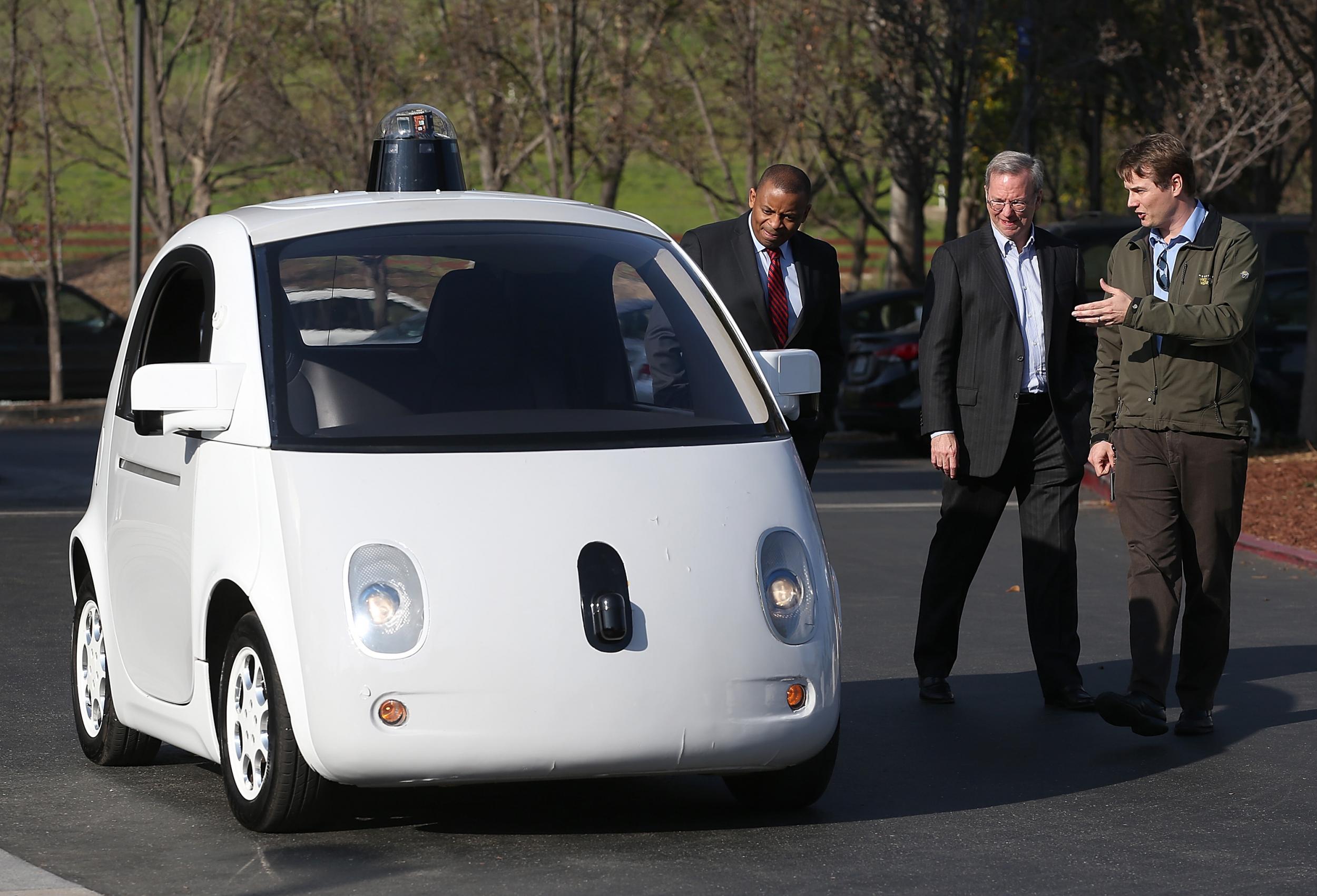Google driverless car crash was 'not a surprise', US transport secretary Anthony Foxx says
Foxx said we shouldn't compare the self-driving car to 'perfection'

Your support helps us to tell the story
From reproductive rights to climate change to Big Tech, The Independent is on the ground when the story is developing. Whether it's investigating the financials of Elon Musk's pro-Trump PAC or producing our latest documentary, 'The A Word', which shines a light on the American women fighting for reproductive rights, we know how important it is to parse out the facts from the messaging.
At such a critical moment in US history, we need reporters on the ground. Your donation allows us to keep sending journalists to speak to both sides of the story.
The Independent is trusted by Americans across the entire political spectrum. And unlike many other quality news outlets, we choose not to lock Americans out of our reporting and analysis with paywalls. We believe quality journalism should be available to everyone, paid for by those who can afford it.
Your support makes all the difference.The US transport secretary Anthony Foxx has said it was "not a suprise" that a Google self-driving car crashed into a bus.
Speaking to the BBC, Foxx acknowledged the crash, which took place in February, but said he would challenge people to compare the incident to "the number of crashes that occurred on the same day that were the result of human behaviour."
"I think question here isn't comparing the automated car to perfection, I think it's a relative comparison to what we have now on the roads, which is you and I, and our eyeballs and our brains," he said.
The Google car crash happened when a driverless Lexus SUV scraped the side of a public bus while pulling out into traffic at low speeds.
Google admitted the car was at fault, saying the software predicted the bus would let the car out because it was ahead of it.
In a statement, Google said: "This type of misunderstanding happens between human drivers on the road every day."
The company said it had now reviewed the incident, and refined the car's software to make it understand that large vehicles are less likely to give way to other vehicles.
Foxx is a confirmed fan of driverless cars. In January, he announced an upcoming $4 billion scheme to support and advance the development of the technology, as well as a proposed change in regulations that would pave the way for autonomous vehicles to hit America's roads.
In the interview, Foxx admitted there was "no question" that the technology has the potential to cause disruption, but said it could also reduce 80 per cent of the car crashes that occur.
Google's cars have already travelled over 1 million miles without anyone at the wheel. They hope the vehicles will be released to the public in 2020.
Join our commenting forum
Join thought-provoking conversations, follow other Independent readers and see their replies
Comments